Real life stories: The wounded veterans hoping to set a new round-the-world record
A state-of-the-art powerboat (not this one!) is set to blast across the world’s oceans in pursuit of a world record – with six Blesma Members at the helm!
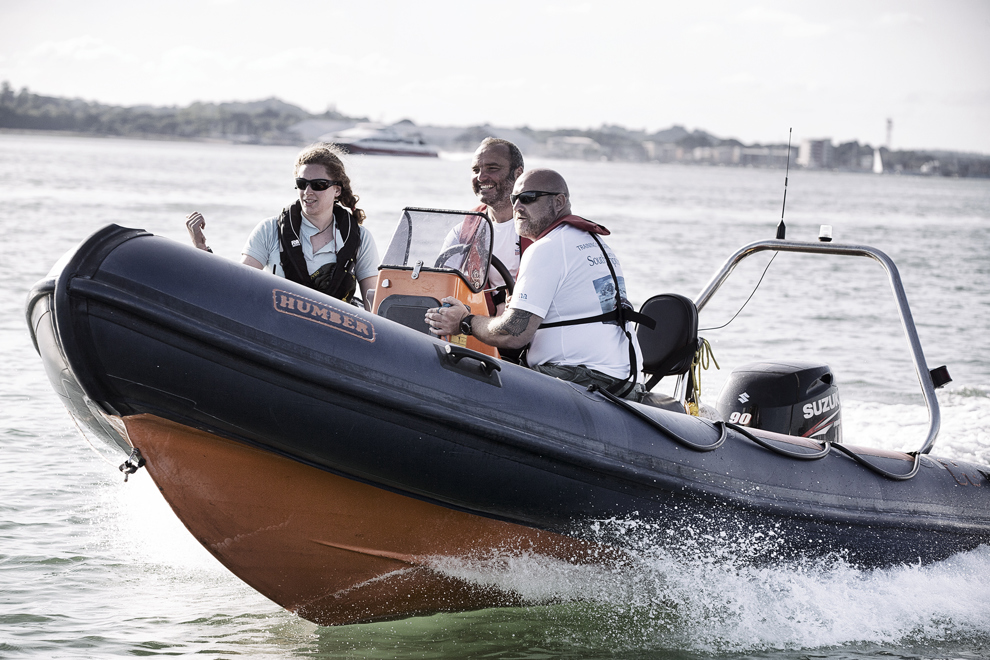
It’s certainly no secret that Blesma Members are an adventurous bunch. The Association is made special by Members who have a constant drive to push the boundaries of what others think is achievable for limbless veterans. When it comes to taking on a challenge then, Members like to go big – world record-big!
Man and Machine (almost) in harmony
That’s why, in March 2017, half a dozen Blesma Members – John Sandford-Hart, Jez Scarratt, Lee Spencer, Ray Finch, Craig Howorth, and Richard Hunt – will join the crew of Team Britannia in what will be a bold attempt to break the world record for the fastest circumnavigation of the planet in a powerboat.
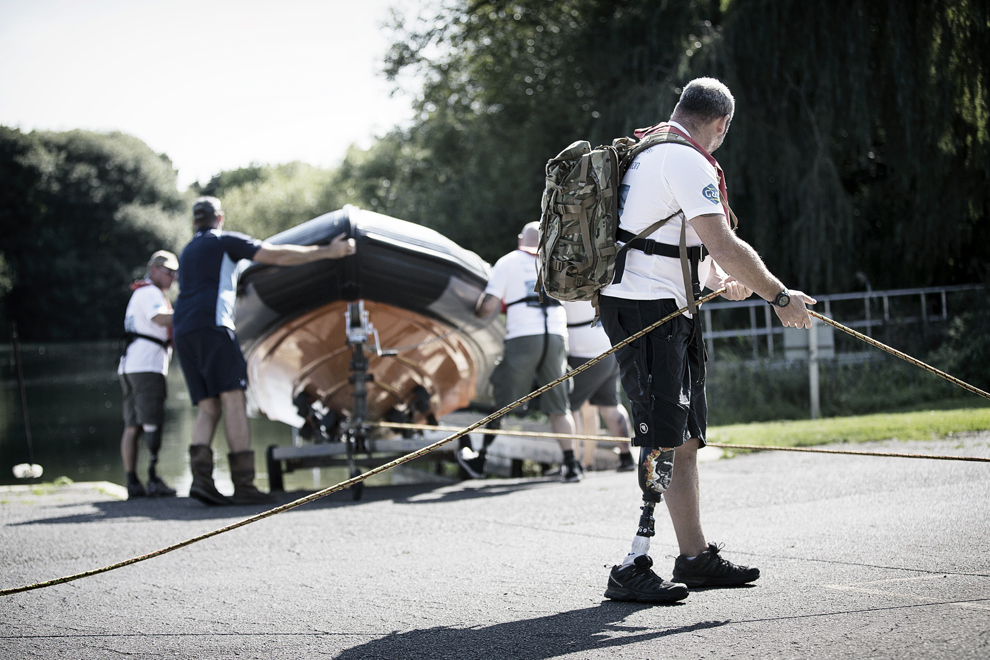
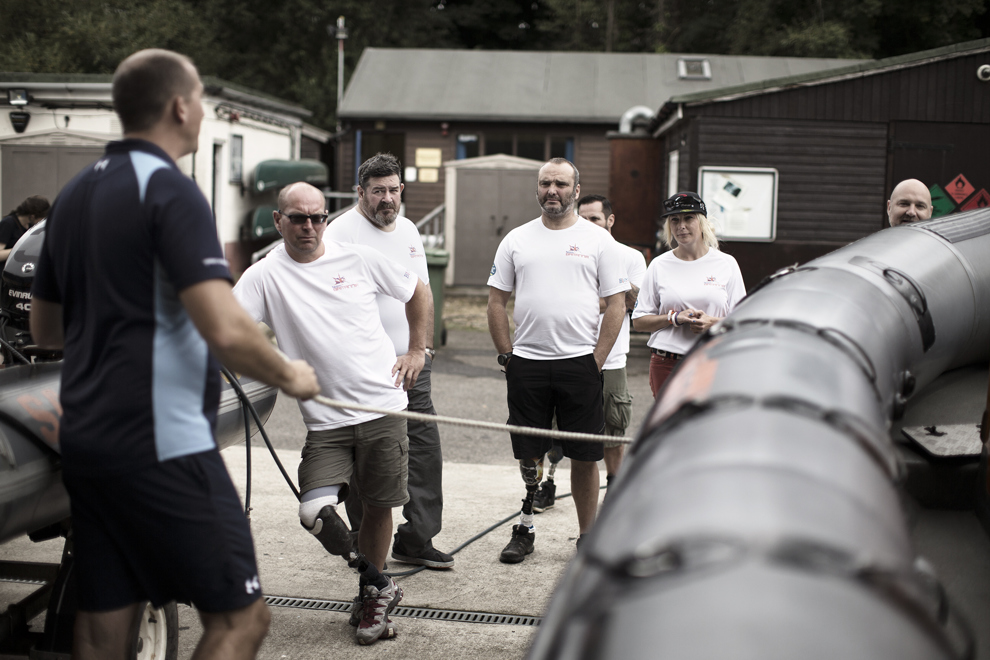
John Sandford-Hart and Jez Scarratt will both be full-time crew members during the attempt, while the other four Military veterans will pair up for three stages each as they attempt to beat the current Union Internationale Motonautique (UIM) record of 60 days, 23 hours and 49 minutes, set by Kiwi Peter Bethune in 2008. “We’ll be at the skipper’s disposal, it’s as simple as that,” says Jez Scarratt. “If we need to cook we’ll cook, if general maintenance of the ship is required, we’ll get on the tools, if it’s cleaning the head, we’ll do it.”
"This shows you should never give up"
As one of the two full-time Blesma Members who’ll be on the boat, Jez is looking forward to an opportunity that very few people will get in their lifetime: the chance to break a world record. “Honestly, hand on heart, it’s going to be one of the biggest experiences of my life,” he says. “I don’t have a world record at the moment – not many of us do! – so to be in with the chance of getting one already makes this an amazing experience that will stay with me forever.”
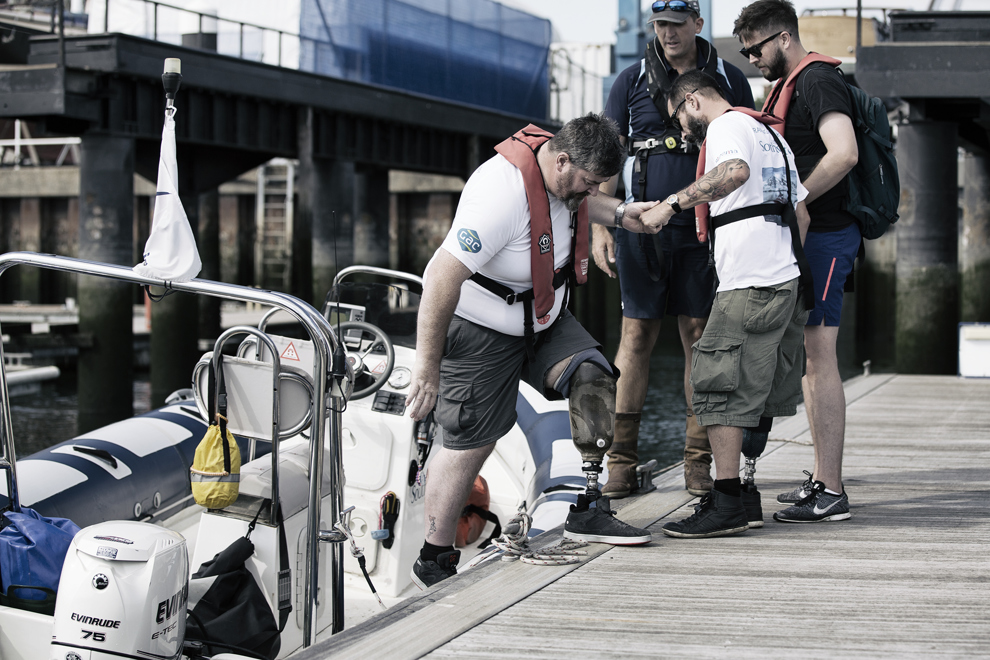
Rules state that the 23,000-mile expedition has to begin and end in Gibraltar. The route will take the team across the Tropic of Cancer, through the Panama Canal, up along the Central American coast before reaching the Pacific Ocean. From there, Team Britannia must sail across the Equator, before navigating past South East Asia, travelling to the Horn of Africa, and then heading through the Suez Canal to finally reach Gibraltar once again.
"Use the time you've got to do something worthwhile"
Throughout the journey, the team will only take short fuel stops in Puerto Rico, Mexico, Hawaii, Guam, Singapore, Oman and, if necessary, Malta. They’ll also use these stops to change personnel, with one pair of Blesma Members making room for another.
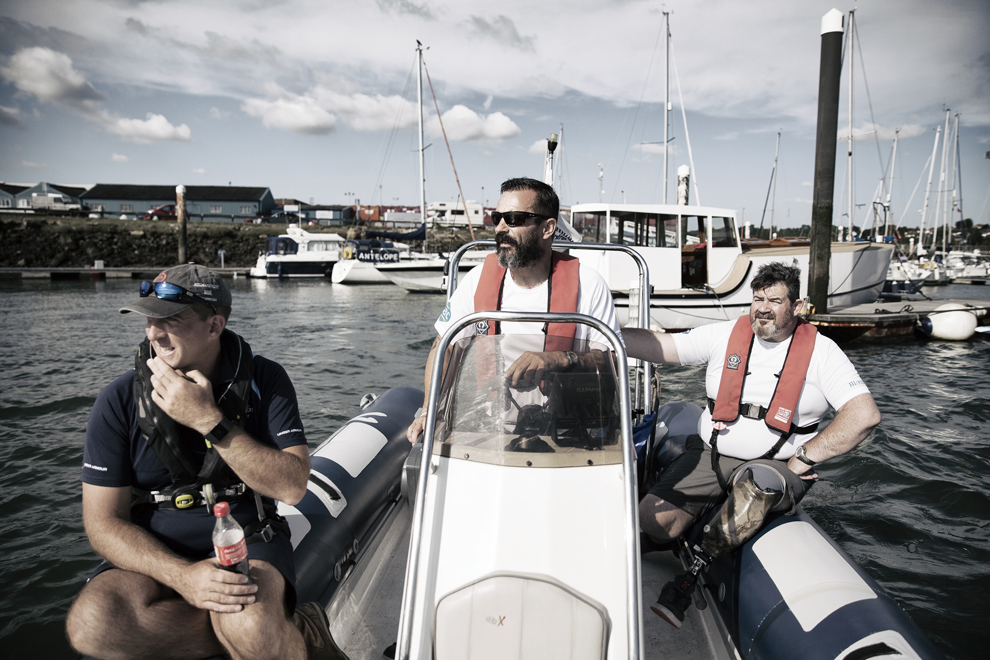
The boat’s skipper, powerboat legend Alan Priddy, believes if all goes well the circumnavigation could be completed in fewer than 50 days. Alan, now 63, has a boat-load of experience when it comes to challenges of this magnitude. He has held 37 world and 12 British records in a career spanning four decades. From sailing around the British Isles as quickly as possible, to 24-hour endurance races around the Isle of White, Alan is a legend in extreme powerboat challenge circles. But, he says, this challenge transcends anything he’s done in his long and illustrious career. Sharing a speedboat with Blesma Members, he says, is a token of thanks for every soldier’s service.
"Taking part in this expedition will definitel be a massive tick in the box that I never thought I would get"
“This is us showing our appreciation for those who have gone before us, those who’ve willingly stood up and fought for Queen and country. You can’t get away from the fact that people who go to war give everything. We all buy poppies and we all donate, but this is about more than that. It’s about taking part and that’s why I want to share it with these men,” he says. Team Britannia’s vessel is an example of the finest marine engineering this country has to offer. The £2.9 million eco-powerboat is still in the process of being built, and will feature revolutionary wave-slicing technology to make the ride as smooth as possible. It will be eco-friendly too, using a mixture of diesel, water and an emulsifying agent that will cut harmful emissions like nitrogen dioxide by up to 30 per cent.
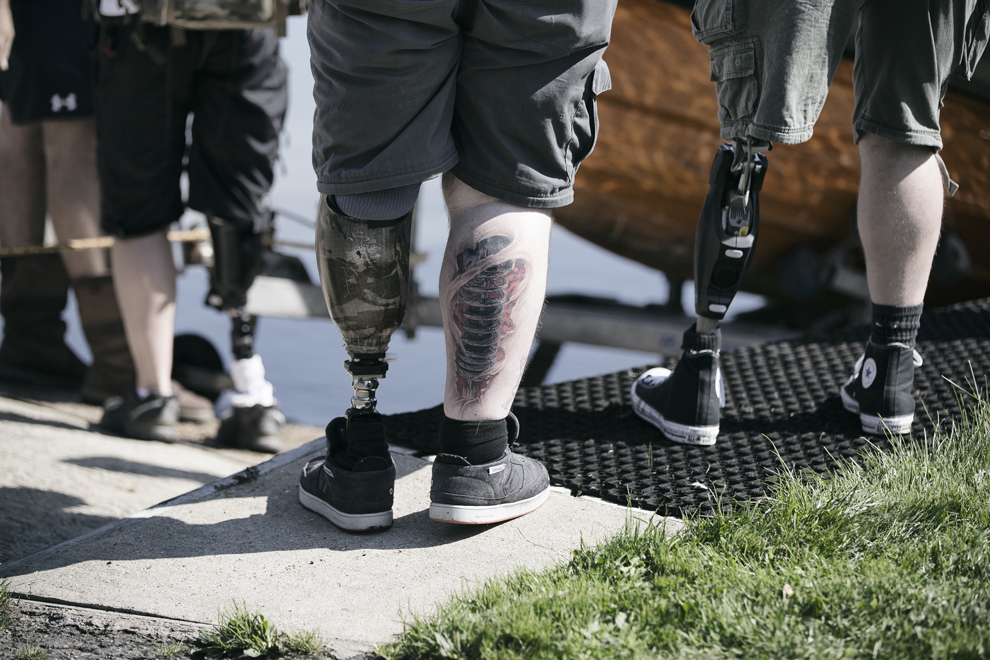
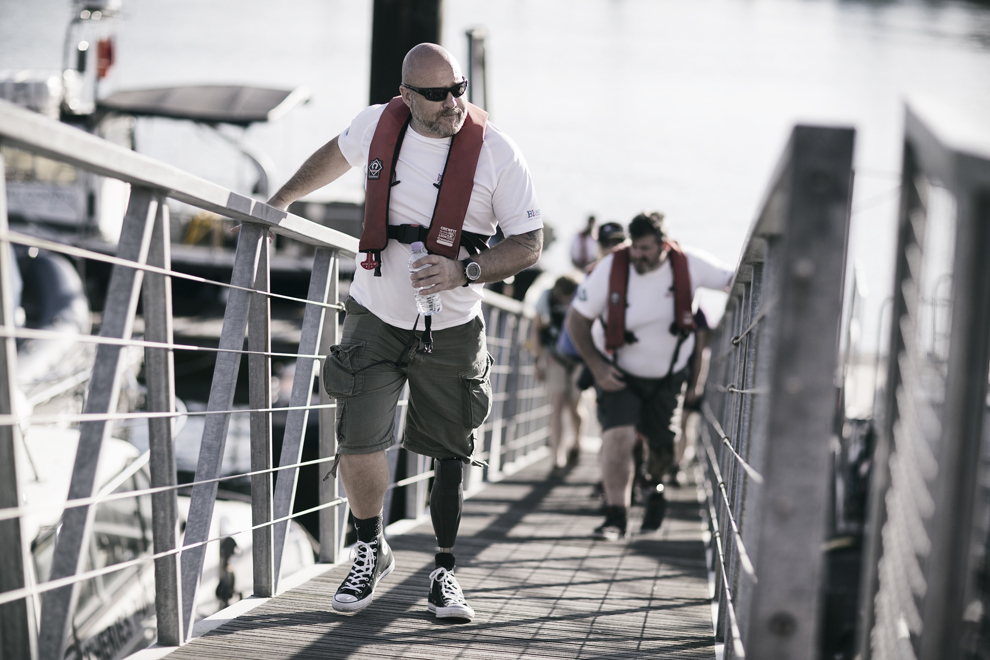
The six Blesma Members who are taking part are not quite the finished article either and, like the boat, are in the middle of their preparations. “They’ve all volunteered for this challenge and have already worked so hard for it,” says Alan. “Preparing for an event like this isn’t easy –and it hasn’t always been enjoyable! – but to get them over the finishing line will be the proudest moment of my career.”
For our six soon-to-be super-seamen, the chance to travel the world and make history was too good an opportunity to pass up. “The fundamental reason for me wanting to take part is that this is an amazing opportunity to do something incredible,” says former Royal Marine and below-knee amputee Lee Spencer, who was part of the four-man Blesma crew to become the first British all-amputee team to row non-stop across the Atlantic Ocean in February, 2016
"This is not a pleasure cruise and there are no passengers on board the boat”
Through a series of training courses in Southampton in September, the six Members have learned the basics of powerboat handling, man-overboard drills and powerboat runs at speed. These competency tests ensure they all know what to do in case of an emergency, but they have also given the Members a greater appreciation of the magnitude of the task. The gentle waters of the Solent are one thing, but rough seas and unpredictable weather at speeds of 50 knots (57mph) will prove very different. As Alan explains, each man will have to earn his keep, grafting through his shift to make sure the attempt runs as smoothly as possible. Work will include constantly monitoring fuel supplies and distances travelled, as well as charting emerging weather patterns with the more experienced members of the crew. Meanwhile, more mundane but equally as important tasks such as cooking and cleaning will be non-stop.
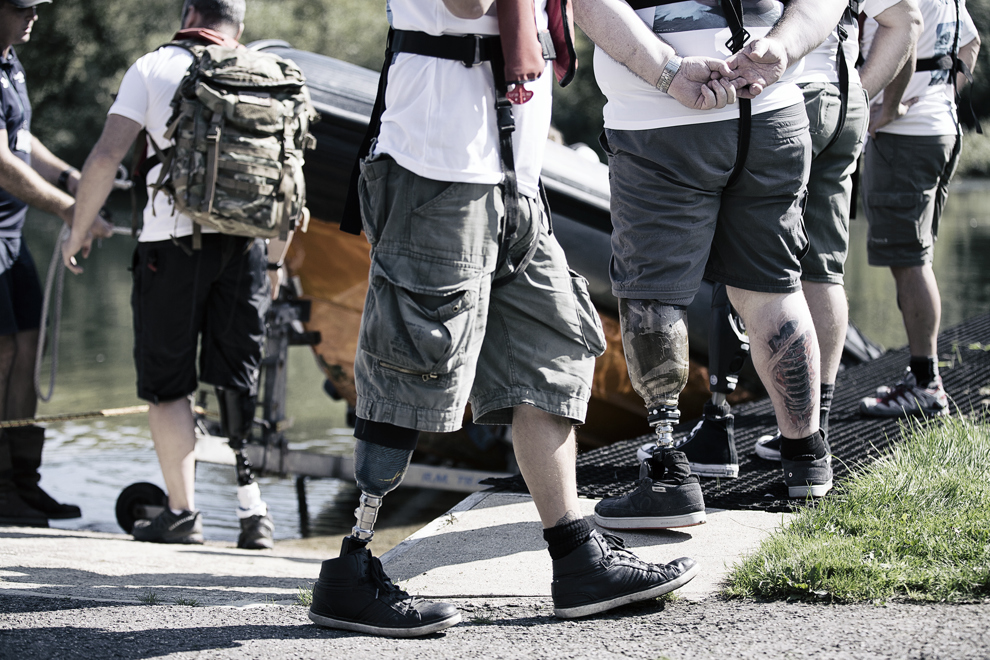
“Mathematical calculations and paperwork will need to be done every minute of the day,” says Alan. “We’ll need to know every centilitre of fuel used, every inch of water that’s covered... If we don’t hit certain targets we simply won’t make it around the world.” While all the Blesma Members on the crew have completed gruelling physical challenges before, being on a powerboat for up to seven days at a time, in one of the most hostile environments on the planet, will be tough. According to Alan, they can expect vicious swells, towering waves, sleep deprivation and even the threat of pirates. Then there’s the psychological challenge; will they be able to hack the intensity of all this in a race against time?
The key to it all, says Alan, is to have a good sense of humour. “The crew are a terrific bunch, we know how to have a laugh and we know how to keep each other motivated through tough times. I’ve introduced everyone to an old rule I’ve lived by for many years; if I look calm and relaxed, so should you. If I’m running around like a headless chicken, going ‘Boohoo, Boohoo’ it might be time to worry!
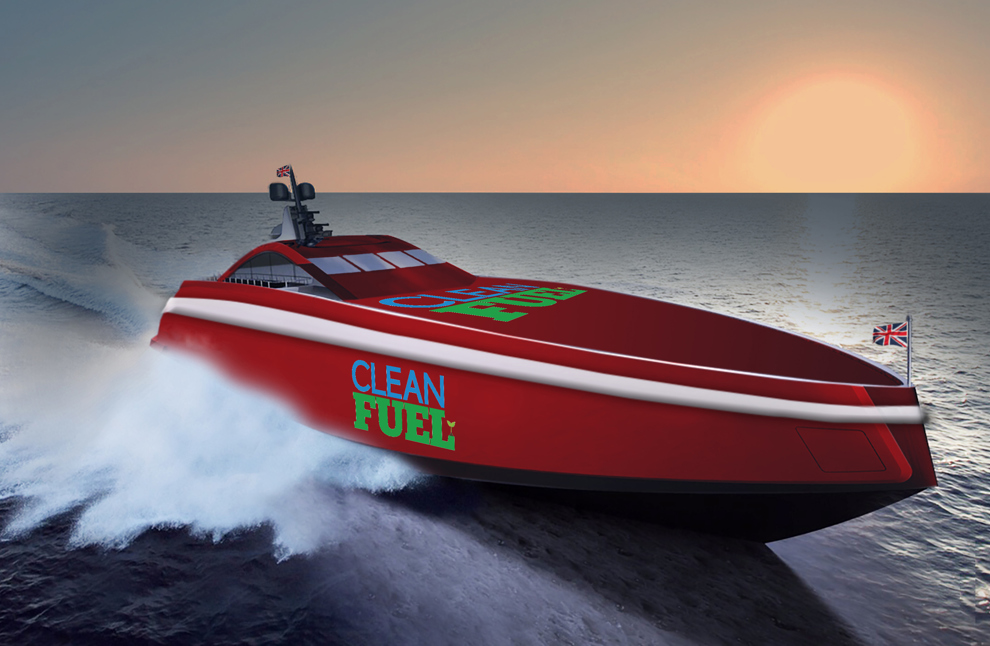
Reshaping the future. The Boat
Team Britannia’s cutting-edge 80ft powerboat is being built specifically for this challenge. Its efficient hull has been designed to slice through waves rather than ride over them, making the ride much smoother – and faster! The boat will be fuelled by a revolutionary mix of diesel, water and an emulsifying agent which will reduce harmful emissions such as carbon dioxide and nitrogen dioxide by up to 30 per cent. The boat will be able to travel for 4,800 nautical miles on one load of clean fuel, powered by two six-cylinder engines and two turbo drive water jets that will propel it through the water at a top speed of 50 knots (57mph).
Couple this with the craft’s super-light aluminium hull and you have a vessel that will be able to withstand the forces of some of the most ferocious oceans on the planet, at serious speed. The boat berths 12, and the crew will live in close proximity. The food they’ll eat is equally state of the art; freeze-dried meals that are definitely a cut above the ration packs they grew accustomed to in the Forces. High-speed internet and radio comms will give the boat 24-hour access to the outside world, but will be kept to a minimum
Leave a comment
Join fellow Members and supporters to exchange information, advice and tips. Before commenting please read our terms of use for commenting on articles.